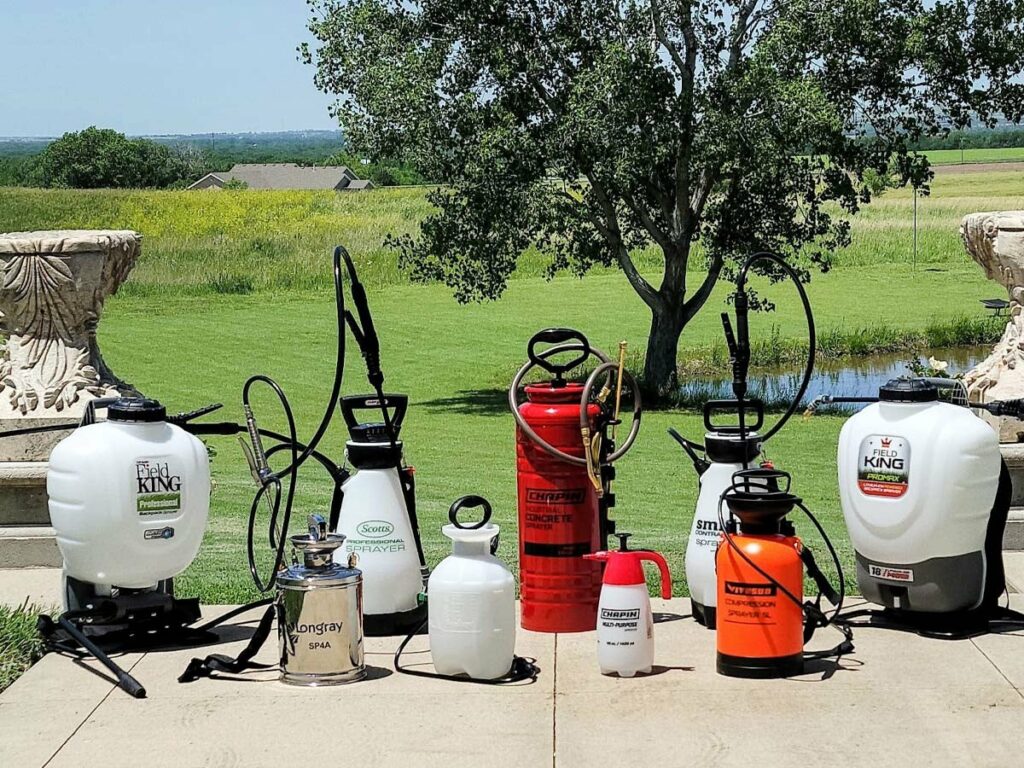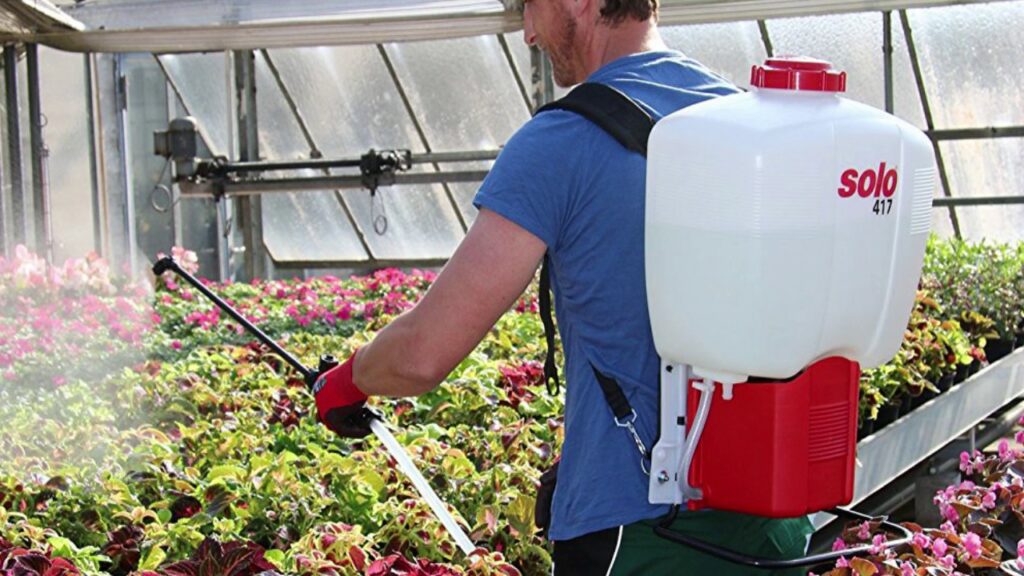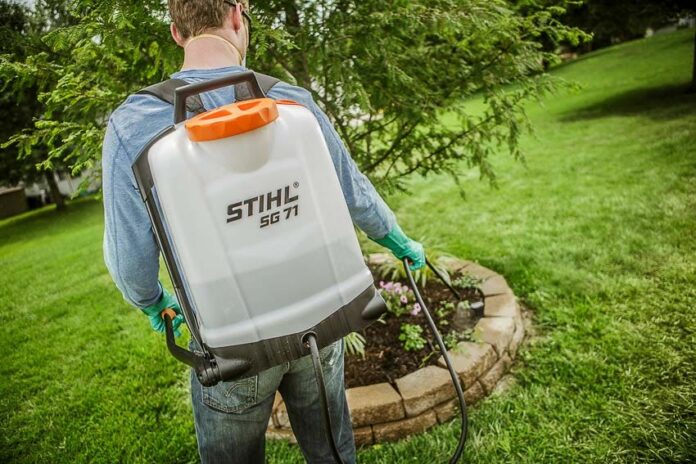If you are into gardening, you must be aware of the importance of using a sprayer to spray water or fertilizers to your plants. However, with so many options available in the market, it can be challenging to choose the right one for your needs. Two of the most popular types of sprayers are backpack sprayers and garden sprayers. While both have their advantages and disadvantages, it is essential to understand their differences to make the right choice. In this article, we will discuss the key differences Backpack Sprayer Vs Garden Sprayer , their pros and cons, and which one you should choose for your garden.
What is a Garden Sprayer?
A garden sprayer is a tool used to apply liquid substances in the garden or around the house. It typically consists of a tank, a wand or nozzle, a pump, and sometimes a pressure regulator or gauge.
Garden sprayers come in various types, including handheld sprayers, backpack sprayers, wheeled sprayers, and hose-end sprayers. They can be used to apply pesticides, herbicides, fertilizers, and other liquids to plants and other surfaces.
Handheld sprayers are small and can be easily carried around the garden. They are ideal for small to medium-sized gardens. Backpack sprayers are larger and are worn on the back like a backpack. They are suitable for larger gardens or for spraying weeds and other pests in hard-to-reach areas. Wheeled sprayers are even larger and have wheels, making them easy to move around. They are ideal for larger gardens or for commercial use. Hose-end sprayers are attachments that can be attached to a garden hose and used to spray liquids evenly over a larger area.
When using a garden sprayer, it’s important to follow the manufacturer’s instructions and safety guidelines. Always wear protective clothing and gloves when handling chemicals, and be sure to clean and maintain your sprayer properly after each use.
Garden Sprayer Overview

A garden sprayer is a tool used for spraying liquid substances in the garden or around the house. It typically consists of a tank, a wand or nozzle, a pump, and sometimes a pressure regulator or gauge.
There are several types of garden sprayers available, including:
- Handheld sprayers: These are small sprayers that you can carry around your garden. They usually hold around 1-2 gallons of liquid and are ideal for small to medium-sized gardens.
- Backpack sprayers: These are larger sprayers that you can carry on your back like a backpack. They are more suitable for larger gardens or for spraying weeds and other pests in hard-to-reach areas.
- Wheeled sprayers: These are larger sprayers that have wheels, making them easy to move around. They are ideal for larger gardens or for commercial use.
- Hose-end sprayers: These are attachments that you can attach to your garden hose. They mix the liquid with water as it passes through the sprayer, making it easy to apply evenly to your garden.
When using a garden sprayer, it’s important to follow the manufacturer’s instructions and safety guidelines. Always wear protective clothing and gloves when handling chemicals, and be sure to clean and maintain your sprayer properly after each use.
Backpack Sprayer Overview

A backpack sprayer is a type of garden sprayer that is worn on the back like a backpack, allowing the user to move around more easily while spraying. It typically consists of a tank, a wand or nozzle, a pump, and sometimes a pressure regulator or gauge.
Backpack sprayers are designed for larger gardens, farms, or commercial use where a handheld sprayer may not be practical. They usually hold anywhere from 4 to 6 gallons of liquid, which can be used to spray pesticides, herbicides, fertilizers, and other liquids.
The pump on a backpack sprayer is typically a manual pump, although some models may be battery-powered or use a gas engine. The pump pressurizes the liquid in the tank, allowing it to be sprayed through the wand or nozzle.
Backpack sprayers are versatile and can be used for a variety of tasks, including applying herbicides to weeds, spraying insecticides to control pests, and applying fertilizers to plants. They are also useful for spraying hard-to-reach areas, such as tall trees or bushes.
When using a backpack sprayer, it’s important to follow the manufacturer’s instructions and safety guidelines. Always wear protective clothing and gloves when handling chemicals, and be sure to clean and maintain your sprayer properly after each use.
The Most Important Factor to Consider
The most important factor to consider when choosing a garden or backpack sprayer is the type of liquid you will be spraying. Different liquids have different properties and require different types of sprayers. For example, some liquids may require a specific type of nozzle or pressure setting, while others may require a sprayer made of a certain material to avoid corrosion.
It’s important to read the product labels and instructions carefully to determine the appropriate sprayer for the liquid you will be using. For example, some pesticides may require a sprayer that is specifically designed for that particular chemical, while some herbicides may require a sprayer with a wand or nozzle that can be adjusted for a specific spray pattern.
Other factors to consider when choosing a garden or backpack sprayer include the size of your garden or area to be sprayed, the type of spray pattern you require, and the level of precision needed in the application. It’s also important to consider the durability and quality of the sprayer, as well as its ease of use and maintenance.
Ultimately, the most important factor is to choose a sprayer that is appropriate for the liquid you will be spraying, and that meets your specific needs and requirements.
Backpack Sprayer vs. Garden Sprayer: Differences and Similarities
a. Capacity: Backpack sprayers generally have a larger capacity than garden sprayers. Backpack sprayers typically hold 4-6 gallons of liquid, while garden sprayers usually hold 1-2 gallons.
b. Comfort: Backpack sprayers are generally more comfortable to use than garden sprayers, especially for larger areas or longer periods of use. The weight of the liquid is distributed evenly on the user’s back, reducing strain on the arms and hands.
c. Portability: Both backpack and garden sprayers are portable, but backpack sprayers are typically easier to move around due to their design. Garden sprayers are handheld and can become tiring to hold for long periods of time.
d. Versatility: Both backpack and garden sprayers can be versatile in terms of what liquids they can spray, but backpack sprayers are typically more versatile due to their larger capacity and range of nozzles. Backpack sprayers can be used for a variety of tasks, from applying fertilizers to spraying pesticides, while garden sprayers are better suited for smaller areas and lighter applications.
In summary, backpack sprayers are better suited for larger areas, longer periods of use, and heavier applications, while garden sprayers are better suited for smaller areas and lighter applications. Both types of sprayers can be versatile in terms of what liquids they can spray, but backpack sprayers are generally more versatile due to their larger capacity and range of nozzles.
Pros and Cons of Backpack Sprayers
Backpack sprayers are a popular choice for gardeners and professionals alike due to their portability and ease of use. Here are some pros and cons of using a backpack sprayer:
Pros:
- Larger capacity: Backpack sprayers can typically hold more liquid than handheld or wheeled sprayers, which means you can cover a larger area before needing to refill.
- Portability: Backpack sprayers are designed to be worn on the back like a backpack, making them easy to move around and reach difficult areas.
- Comfort: The weight of the liquid is distributed evenly on the user’s back, reducing strain on the arms and hands.
- Versatility: Backpack sprayers can be used for a variety of tasks, from applying fertilizers to spraying pesticides.
- Precision: Backpack sprayers usually have adjustable nozzles, allowing for more precise application of liquids.
Cons:
- Cost: Backpack sprayers can be more expensive than handheld or wheeled sprayers due to their larger capacity and design.
- Weight: While the weight of the liquid is distributed evenly on the user’s back, the weight of the sprayer itself can still be a burden for some users.
- Maintenance: Backpack sprayers require regular maintenance to keep them in good working condition, including cleaning and oiling the pump.
- Chemical exposure: Using a backpack sprayer means being in close proximity to the chemicals being sprayed, which can be a safety concern if not handled properly.
- Learning curve: Using a backpack sprayer requires some practice and technique to ensure even application and avoid wasting liquid.
Overall, backpack sprayers can be a convenient and versatile tool for gardeners and professionals, but they require proper use, maintenance, and safety precautions to be effective and safe.
Pros and Cons of Garden Sprayers
Here are some pros and cons of using a garden sprayer:
Pros:
- Affordable: Garden sprayers are generally less expensive than backpack sprayers due to their smaller capacity and design.
- Lightweight: Garden sprayers are handheld and easy to carry around, making them ideal for smaller gardens and quick applications.
- Easy to use: Garden sprayers are straightforward to operate, with simple pump or trigger mechanisms.
- Low maintenance: Garden sprayers require minimal maintenance, with simple cleaning and occasional lubrication of the pump.
- Precision: Garden sprayers often have adjustable nozzles, allowing for more precise application of liquids.
Cons:
- Smaller capacity: Garden sprayers typically hold less liquid than backpack sprayers, which means you may need to refill more frequently when covering a larger area.
- Limited range: Garden sprayers are handheld, which means they have a limited range and may not be able to reach high or hard-to-reach areas.
- Tiring to use: Holding a garden sprayer for an extended period can be tiring on the arms and hands, especially if applying liquids to a larger area.
- Limited versatility: Garden sprayers are generally designed for light-duty applications, and may not be suitable for heavy-duty or commercial use.
- Chemical exposure: Using a garden sprayer means being in close proximity to the chemicals being sprayed, which can be a safety concern if not handled properly.
Overall, garden sprayers can be an affordable and easy-to-use tool for small to medium-sized gardens, but may not be suitable for larger areas or heavy-duty applications. They require proper use, maintenance, and safety precautions to be effective and safe.
Which Sprayer is Right for Your Garden?
The right sprayer for your garden depends on several factors, including the size of your garden, the type of liquid you will be spraying, and your personal preferences. Here are some things to consider when choosing a sprayer for your garden:
- Garden size: If you have a small garden or only need to apply liquids to a few plants, a handheld or hose-end sprayer may be sufficient. If you have a larger garden, a backpack or wheeled sprayer may be a better choice.
- Liquid type: Different liquids require different types of sprayers. Read the label of the product you will be using to determine the appropriate sprayer.
- Comfort: Consider how comfortable the sprayer is to use for extended periods of time. Backpack sprayers may be more comfortable for larger gardens, while handheld or hose-end sprayers may be more suitable for smaller gardens.
- Precision: Consider how precise you need to be in applying the liquid. Backpack and garden sprayers usually have adjustable nozzles that can help control the spray pattern.
- Maintenance: Consider how much maintenance the sprayer requires. Backpack and garden sprayers require regular cleaning and maintenance, while hose-end sprayers require less maintenance.
- Budget: Consider how much you are willing to spend on a sprayer. Handheld and hose-end sprayers are generally less expensive, while backpack and wheeled sprayers may be more expensive.
Ultimately, the right sprayer for your garden will depend on your specific needs and preferences. Consider the factors above when choosing a sprayer and be sure to follow the manufacturer’s instructions and safety guidelines when using it.
Here are some frequently asked questions (FAQs) about garden sprayers:
How do I clean my garden sprayer?
To clean your garden sprayer, first empty the tank and rinse it with water. Then, fill the tank with a cleaning solution (such as a mixture of water and dish soap), pump the sprayer a few times, and spray the solution through the nozzle. Rinse the tank and nozzle thoroughly with water, and let it air dry.
Can I use bleach in my garden sprayer?
It depends on the type of sprayer and the bleach concentration. Read the label of your sprayer and the bleach product to determine if it is safe to use bleach in your sprayer. Some sprayers may be damaged by bleach or other harsh chemicals.
How do I adjust the nozzle on my garden sprayer?
The method for adjusting the nozzle varies by sprayer type and model. Consult the manufacturer’s instructions for specific guidance on adjusting the nozzle.
Can I use my garden sprayer for painting?
No, garden sprayers are not designed for painting and may not be suitable for use with paint. There are specialized sprayers designed specifically for painting, which should be used instead.
In conclusion, garden sprayers are versatile and useful tools for applying liquids in the garden or around the house. When choosing a sprayer, consider factors such as garden size, liquid type, comfort, precision, maintenance, and budget. Be sure to follow the manufacturer’s instructions and safety guidelines when using and maintaining your sprayer to ensure safe and effective use.


